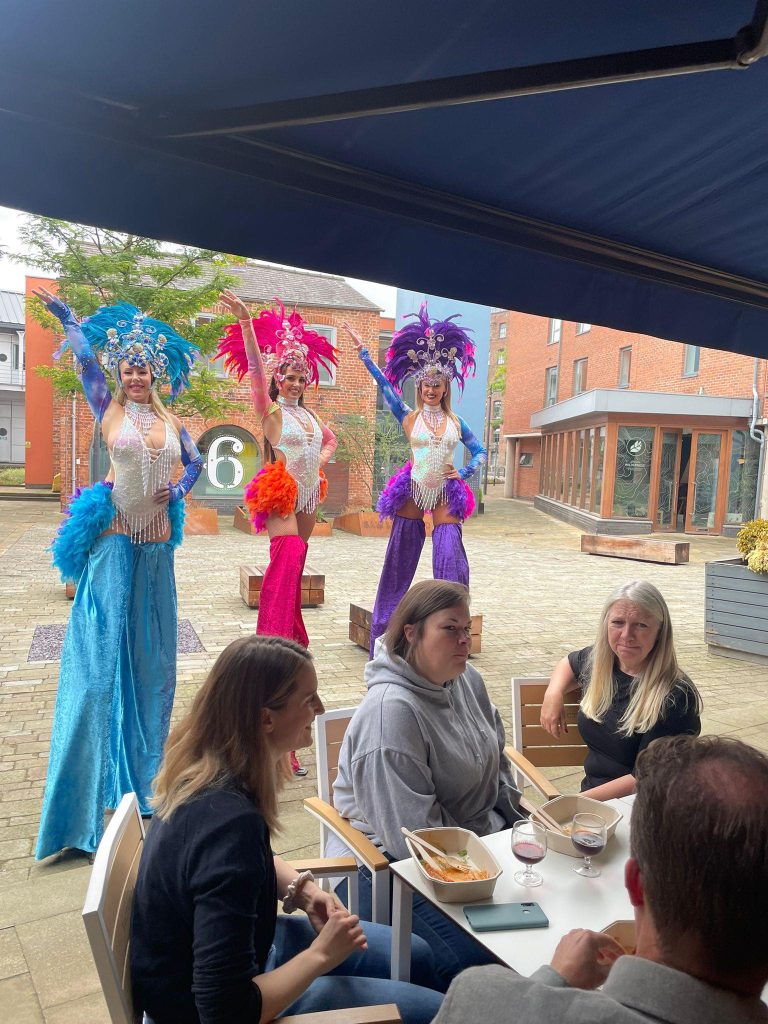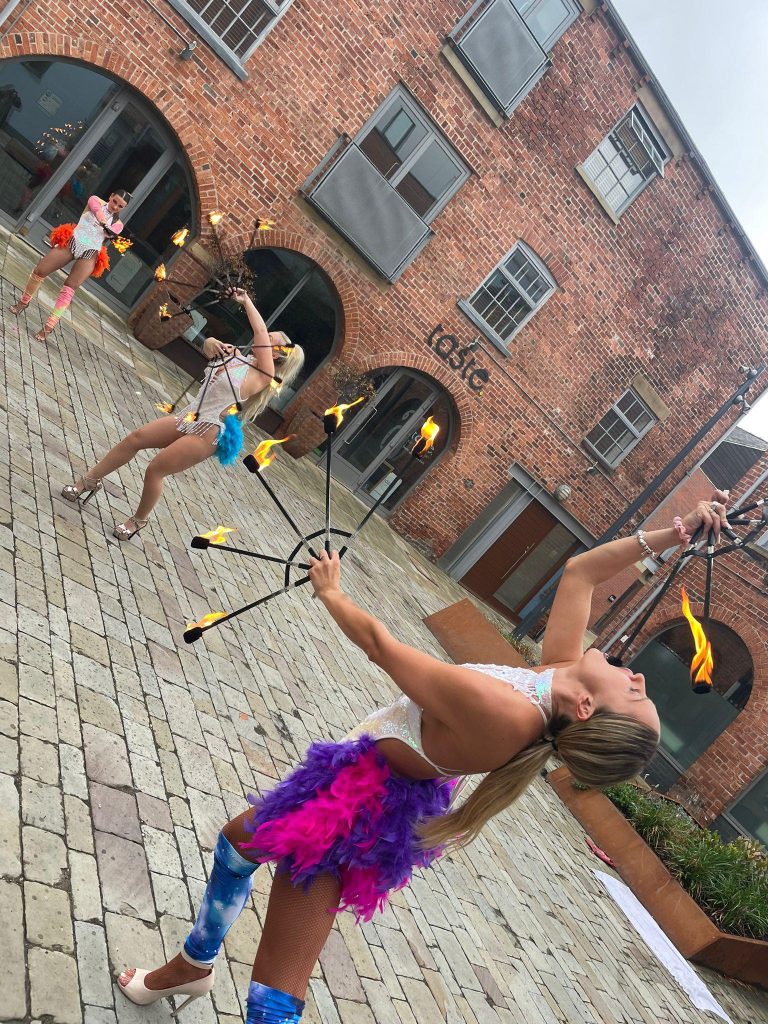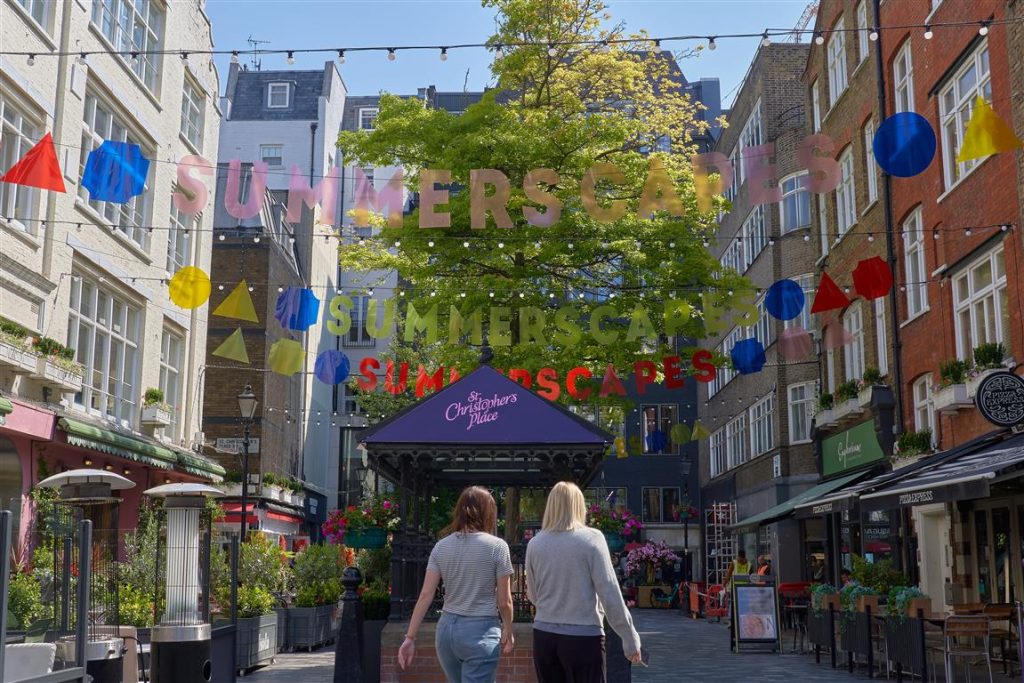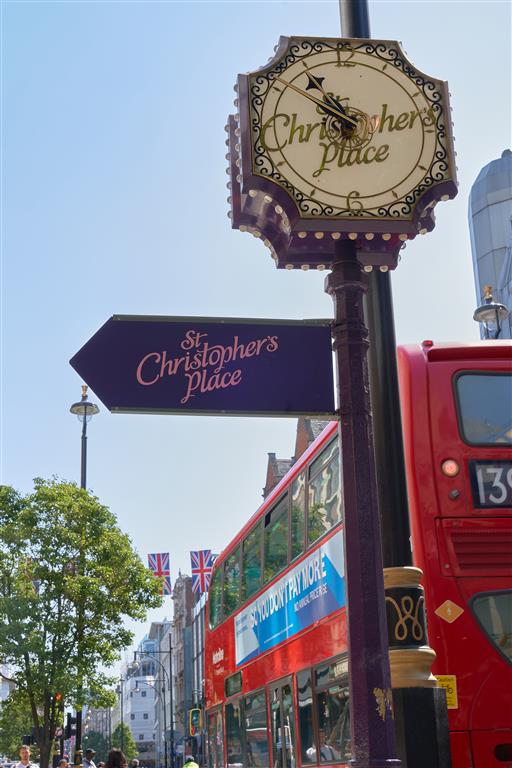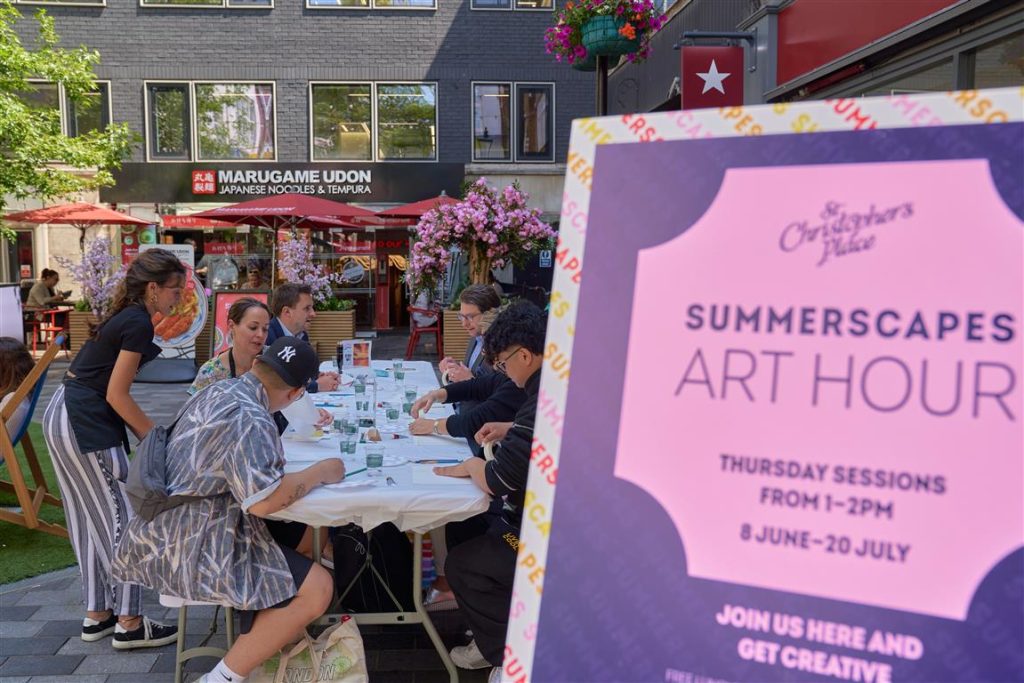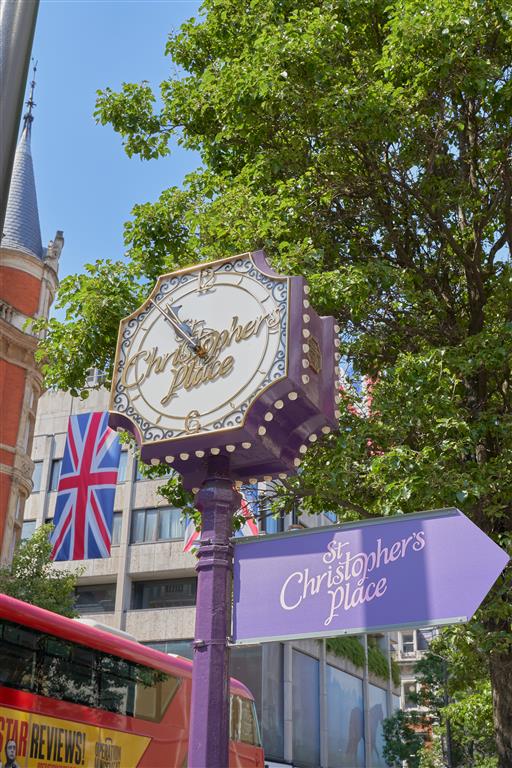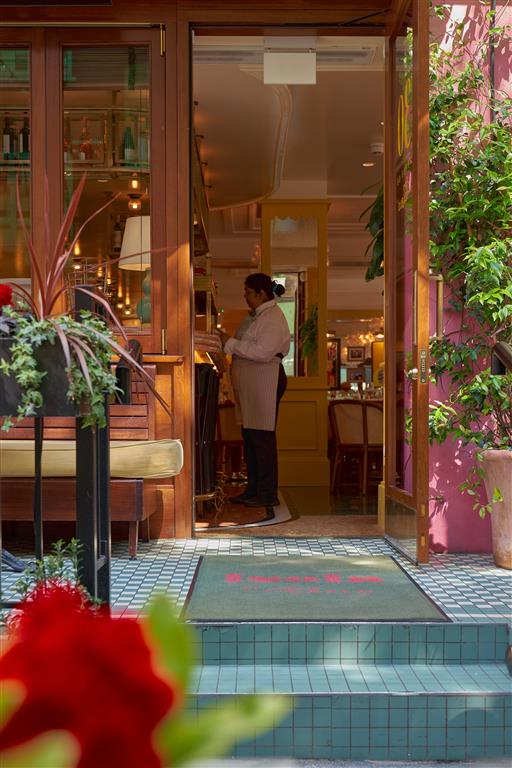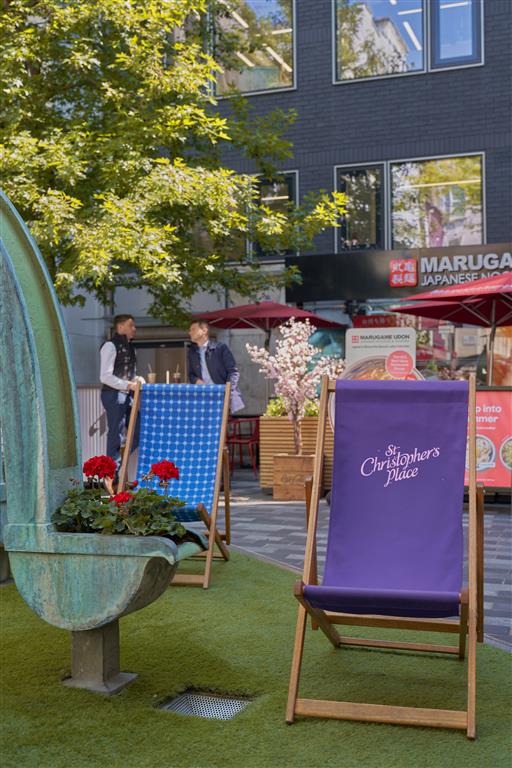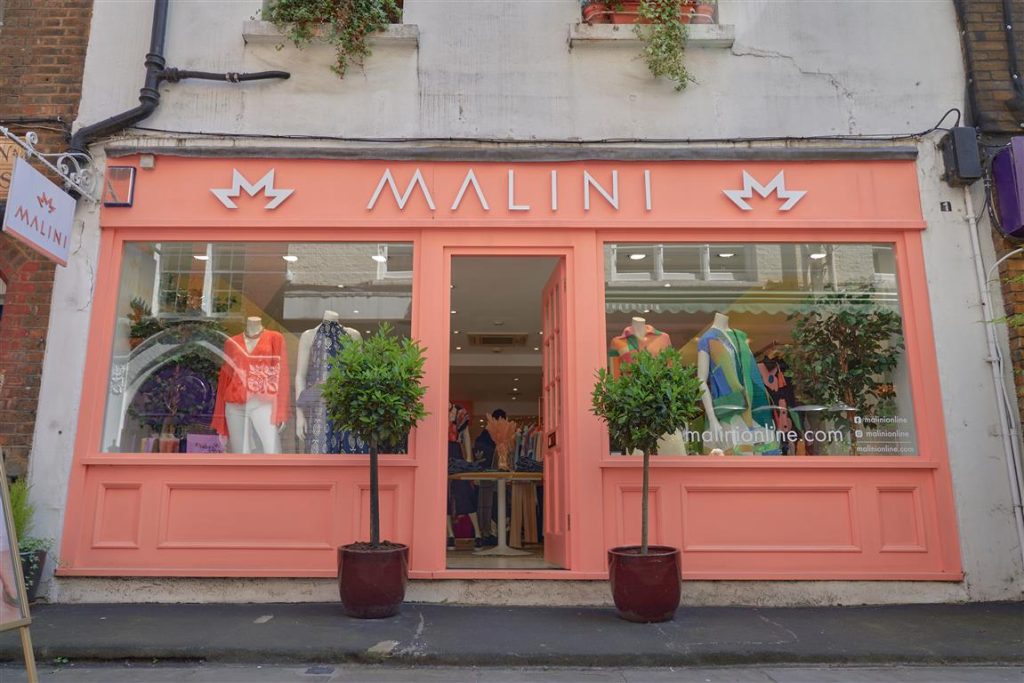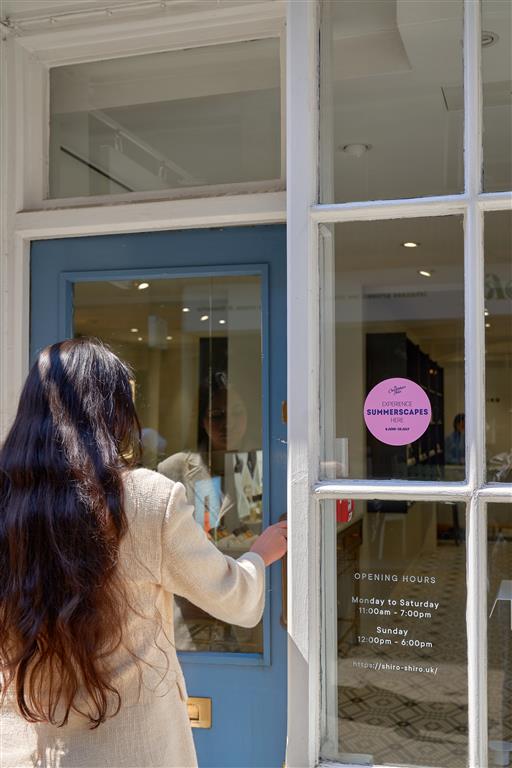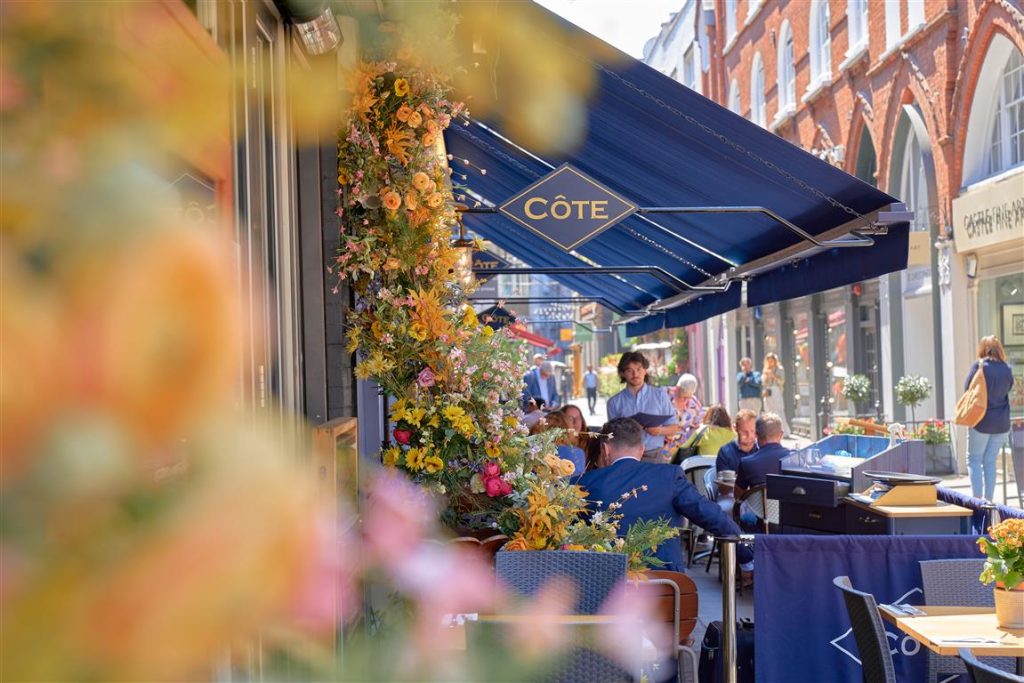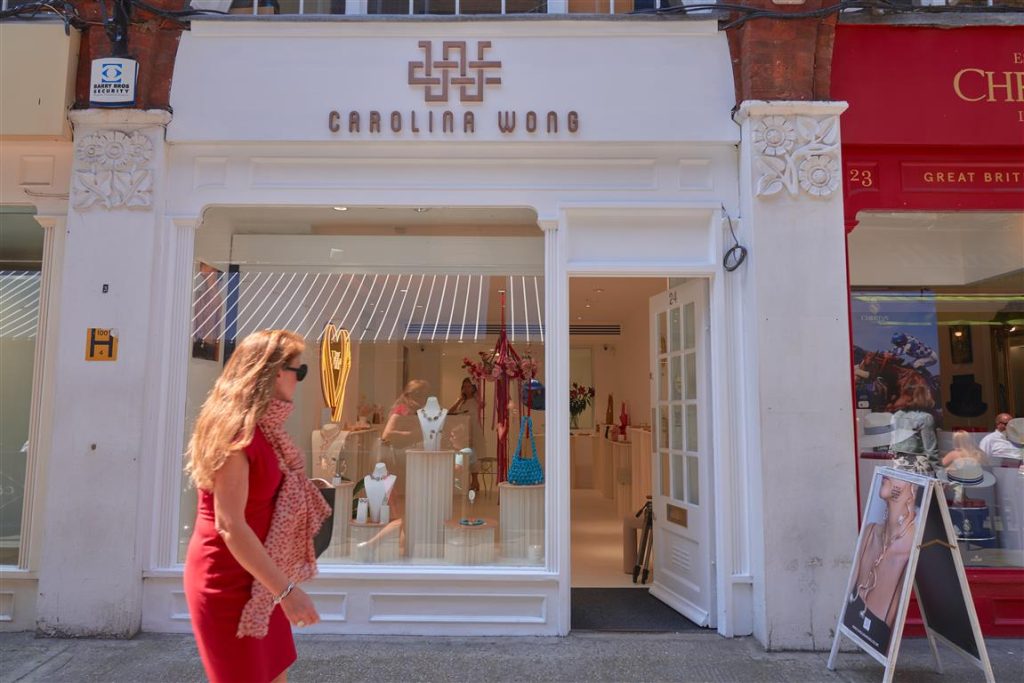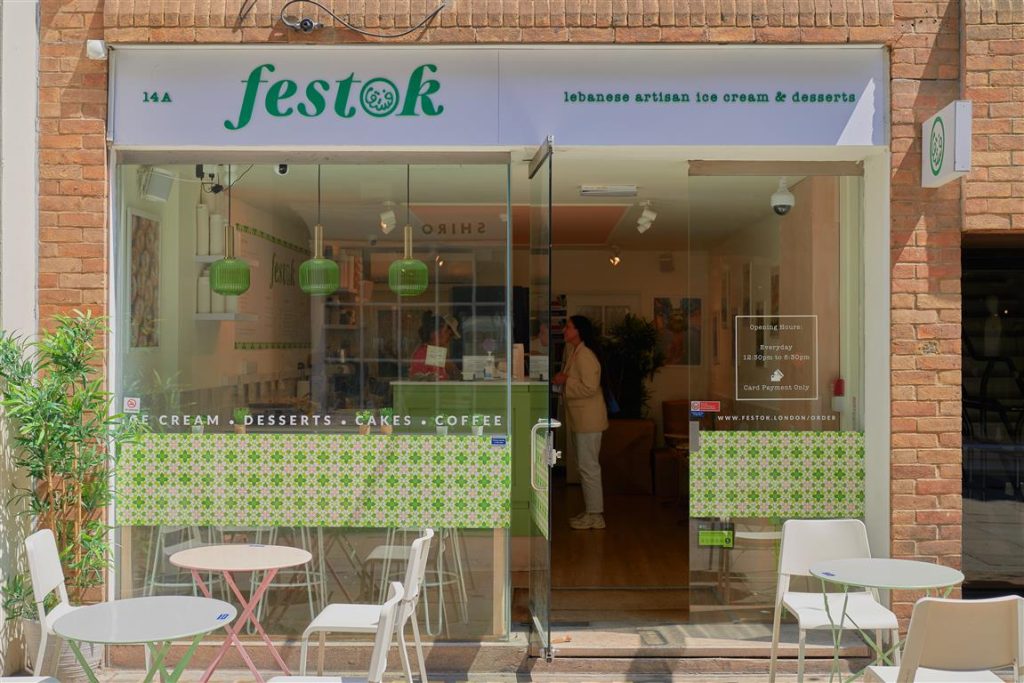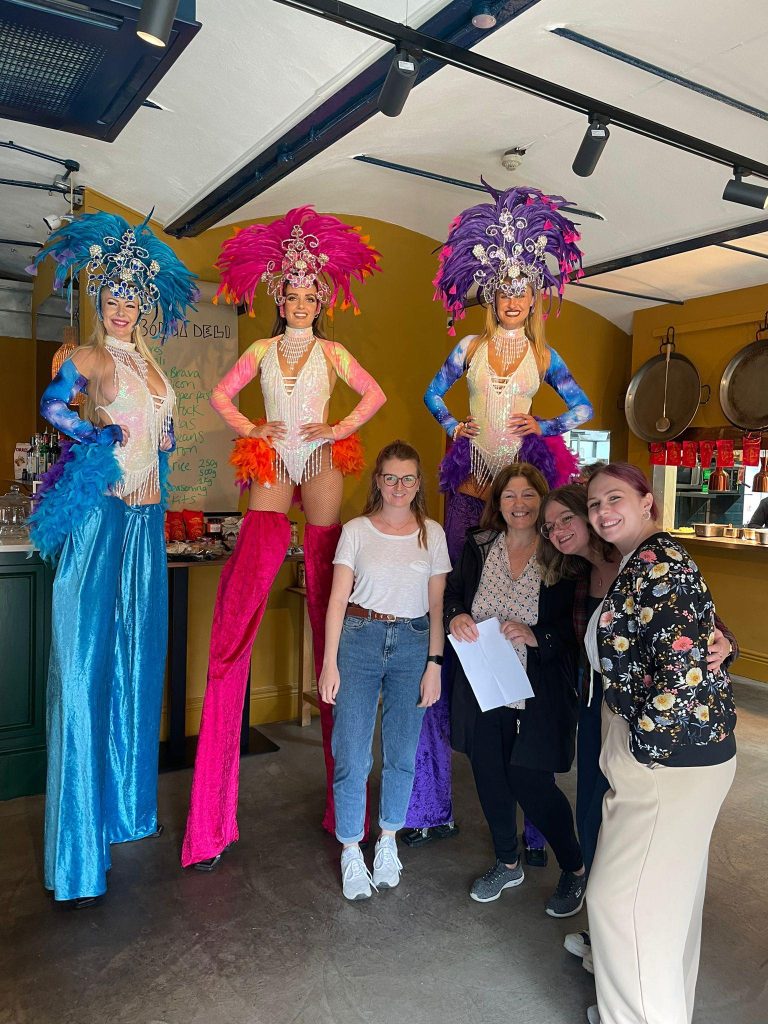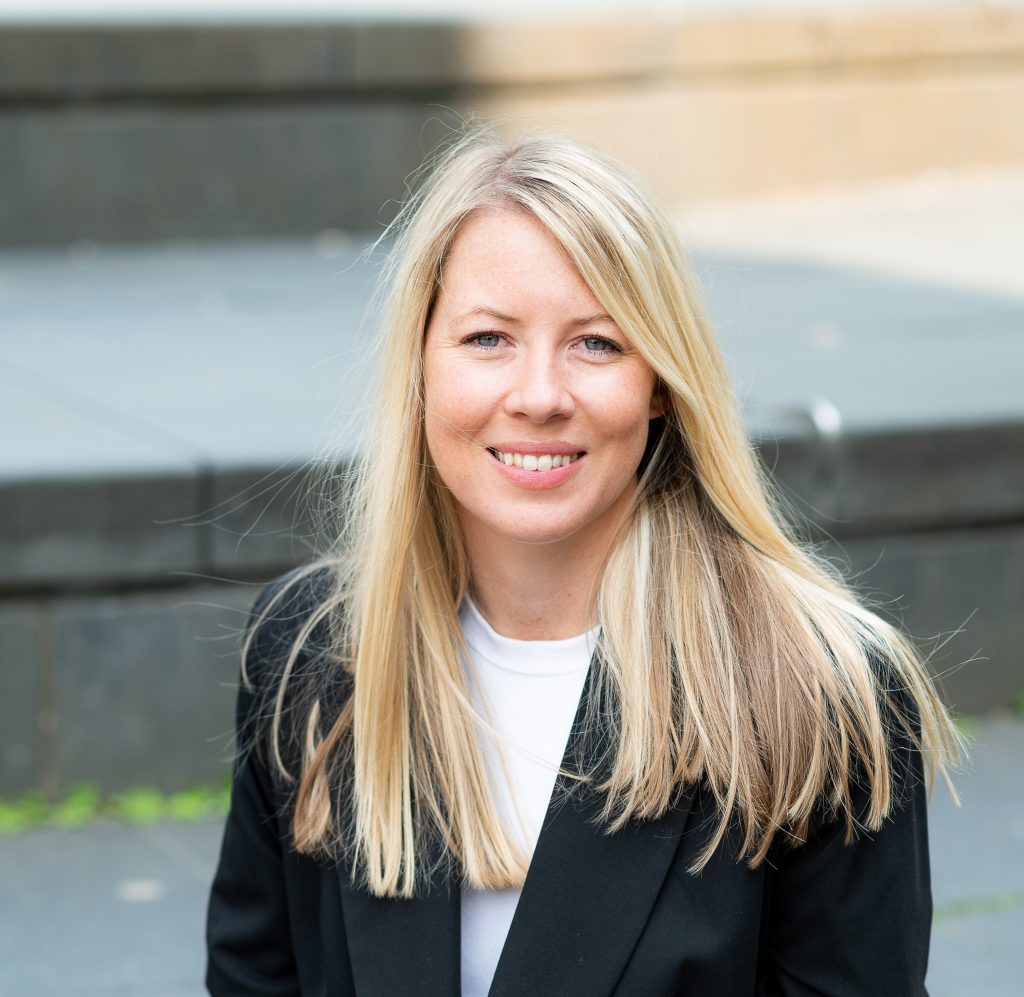
Destination marketing for workplaces has never been more crucial for building community than in these post-pandemic years, writes Emma Henson, Place Marketing Manager at Activate.
Now that more and more occupiers are returning, while still flexing their in-office days post-pandemic, it’s vital that time spent in workplaces is as valuable and meaningful as possible.
Activate’s destination marketing programmes not only increase attendance rates; our enlivenment strategies also help create communities that teams want to be a part of, with events they don’t want to miss.
With fluctuations in the working week and unpredictable numbers of people coming to the workplace on any given day, the regular calendar of events and activities organised by an onsite property team now requires a greater cleverness and creativity than ever before, to appeal to staff that may not need to come into the office.
Today, a vital strategy in the destination marketing toolkit is to integrate events online or via an app so that IRL activations perform across both physical and virtual settings; seamlessly combining the home and workplace audiences as they move between locations.
One example of this integrated approach is the recent flower wall activation at Breakspear Park, a Workman-managed business park in Hemel Hempstead set in 16 acres, offering over 300,000 sq. ft of indoor space, with 1,300 employees across multiple international and local companies in a variety of sectors.
The flower wall activation was onsite for four weeks, accompanied by a campaign encouraging occupiers’ employees to take a selfie, upload it to Instagram, and tag #BreakspearPark for a chance to win a four-month subscription to Freddie’s Flowers. In addition, a free Green People organic sunscreen was on offer via QR code to those who downloaded the new Breakspear Park App.
Building workplace community: a feeling of togetherness
The event was designed to drive uptake of the app, encourage engagement with other staff members, to make people smile, capture a moment with colleagues, and bring that feeling of togetherness back again post-pandemic.
Elsewhere, Activate was recently appointed to deliver destination marketing and community engagement at two significant office locations: Spark Foundry, part of the Newcastle Helix tech and science community in Newcastle and the Round Foundry Media Centre including Marshall’s Mill in Leeds.
To get started, the Activate team ran a Spanish Fiesta-themed social at the Marshall’s Mill workplace, which attracted 100 people from the occupier workforce at the Leeds office scheme. Occupiers’ employees were invited to sign up for the event, organised by the Activate destination marketing team. One of the scheme’s restaurants, Bomba, provided tapas and drinks, which were accompanied by themed entertainment and music to add enlivenment. Many attendees stayed for the full three-hour event, saying they loved the community spirit it gave to the scheme.
During the pandemic, people were starved of human interaction, especially in the workplace. Now people are excited to get people back together, so that when they are in the offices, they are learning, developing, and collaborating again, which can have such a positive impact on mental wellbeing.
Activate’s destination marketing programmes form a cornerstone of workplace community-building that extends beyond the professional into the social, and helps people find even more reason to return.
Find out more:
Read more about Activate’s Destination Marketing service.
Read more about our approach to Building Community across our managed portfolio.
Workman has expanded its Activate team with new hires, as demand for Destination Marketing and Placemaking services grows, as reported by Retail Destination.
Specialists in Placemaking and Destination Marketing, the team welcomes Emma Henson in the newly created role of Place Marketing Manager.
Having spent the past 10 years working in marketing within retail property and hospitality, Henson will lead Activate’s Destination Marketing team and develop the service to support Workman’s clients’ destination marketing objectives in the future, across offices and business parks, as well as retail and leisure spaces.
In addition, Tia Gowing joins the Activate team as Marketing Events Administrator, and will support the team’s service and growth, focusing on client reporting and liaison with on-site teams.


Activate celebrates fourth anniversary
Now celebrating its fourth anniversary since launch in 2019, the growing Activate Destination Marketing team manages a client marketing spend in excess of £1.2m.
Producing and publishing more than 3,000 pieces of social content every month, the team generates website traffic of in excess of 1.5m visitors each week. A key focus of the team has been to drive social value benefits to clients through their destination marketing activations on site.
Emma Henson, Place Marketing Manager at Activate, said: “I’m delighted to be leading the Activate Destination Marketing team to the next stage in its evolution, supporting our clients as they look to provide valued places for people, especially as we face the pressures of the continued cost-of-living crisis. In today’s market, where office and retail destinations must not only compete against one another, but also against homes and the screen in everyone’s pocket, I believe that places have a crucial role to play in building community – and uniting people in a common vison.”
Andrew Sparrow, Director of Placemaking at Activate, said: “We are aiming to support asset management objectives by increasing occupier satisfaction and retention levels. There is a competitive market in terms of where businesses now take space, so occupiers often question the added value of each site, and what they and their employees stand to gain from it in terms of community, sustainability, and wellbeing.”
Summerscapes: more than 70% of retail and leisure occupiers at St Christopher’s Place sign up to 6-week destination marketing push.
With glorious weather and a steel band for good measure, the Summerscapes destination marketing campaign – in partnership with Activate – marks a six-week celebration of the summer season welcoming new dishes, offers and shopping experiences, as well as the opportunity to get creative with lunchtime art classes. A chic little corner of London, just off of busy Oxford Street, St Christopher’s Place is filled with artisans and heritage brands. More than 70% of the scheme’s retail and leisure occupiers have collaborated with the campaign this year. Visitors can toast the blue skies with Cote Brasserie’s summery new floral cocktail, the Fleur Spritz, complete with St Germain elderflower liqueur. Or they could shop ‘til they drop to complete their perfect holiday wardrobe at Platform and Whistles.Activate’s Spanish Fiesta-themed social at the Marshall Mills and Round Foundry Estate in Holbeck Urban Village attracted 100 people from the occupier workforce at the Leeds office scheme.
Occupiers’ employees were invited to sign up for the event, organised by the Activate destination marketing team.
One of the scheme’s restaurants, Bomba, provided tapas and drinks, which were accompanied by themed entertainment and music to add enlivenment.
Many attendees stayed for the full three-hour event, saying they loved the community spirit it gave to the scheme, and that the event brightened up an otherwise dreary Tuesday lunchtime.
Find out more on Activate’s destination marketing at workplaces.

Building Community: the Workman way
At Workman, we are committed to creating an outstanding customer experience for occupiers and our Building Community campaign showcases the benefits that this commitment to the occupier experience can have.
A sense of place and togetherness creates community within buildings. This ethos has informed the development of our occupier engagement initiatives, which aim to bring people together across commercial property.
By raising the standard of occupier engagement, our property management style and creative approach deliver services that make Workman-managed properties much more than simply a desk and a chair.
Today’s commercial property must offer stimulating, social environments that support employees’ and customers’ physical and mental wellbeing in an environmentally responsible way.
Property management strategies should be designed to create communities where buildings add value to their end-users’ experience and environment, persuading them that the workplace is once again a thriving hub.
Our Building Community magazine has been produced to highlight the value of, and our expertise in, creating environments where occupiers want to stay. In it, we consider;
- the role of technology in creating a great occupier experience,
- why regularly seeking occupier feedback is vital, and how best to it with Real Service,
- the role commercial destinations can play in creating positive social impact within their communities,
- some of the most effective ways to build real communities within commercial locations.
Read more about our property management services and how we can build communities here.

In a hybrid-working world, occupiers risk workforces becoming disjointed and isolated, which means building workplace community is even more vital. So how can destination marketing be used to bring people together?
Before the pandemic, destination marketing in the workplace could be aimed at a captive audience – people who were coming to the workplace regardless of the occupier experience. Today, it’s a very different challenge, with fluctuations in the working week and unpredictable numbers of people coming to the workplace on any given day. While there are peaks and troughs – witness the Wednesday uplift and the Friday desert – the regular calendar of events and activities organised by an onsite property team now requires a greater cleverness and creativity than ever before, to appeal to staff that may not have to come to the office.
“We’ve taken a different tack,” says Dina Mistry, Marketing, Communications and Events Manager at Breakspear Park, a Workman-managed business park in Hemel Hempstead set in 16 acres, offering over 300,000 sq. ft of indoor space, with 1,300 employees across multiple international and local companies in a variety of sectors.
“We are no longer planning single-day events because we see a spike for a few hours of uplift in employee engagement, and then the event is over. Our focus is now on growing our community back over a sustained period, with events and activities running over longer phases, and culminating in the download of our new app,” explains Dina.
Pre-pandemic, the site had a very strong following in terms of the base of people that were engaged with its busy #ParkLife enlivenment agenda where the plethora of #ParkLife events have included an Ice Bar, Halloween Pumpkin Picking, and a Silent Cinema, all communicated via subscription to email newsletters and a closed Facebook group. The pumpkin event generated positive regional PR and increased the site’s closed Facebook group sign-up rating.
However, the post-pandemic number of employees engaged via email or the Facebook group have reduced to 60% of the usual figure due to factors such as a turnover of occupier staff, and new companies arriving at the park. The aim of the new app, explains Dina, is to highlight key awareness dates, recycling initiatives, book swaps, and plastic-free ideas, with the key message that “you don’t have to be physically in the office to still feel a part of the Park Life Community at Breakspear Park.”
“The challenge now is to get out there with our #ParkLife campaign and regularly communicate with people so that they can see what we’re doing for them. We’re giving occupiers’ employees things to do that their direct employer cannot offer, including freebies, central places to be engaged onsite, and encouraging their own wellbeing,” Dina says.
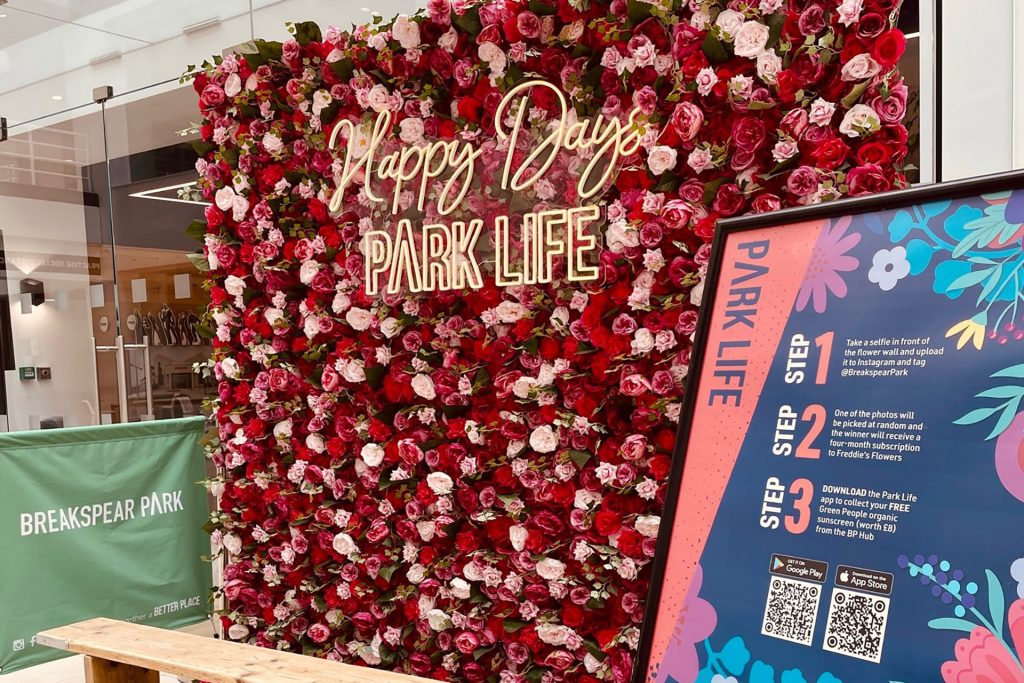
One example is a flower wall activation, onsite for four weeks of July, accompanied by a campaign encouraging occupiers’ employees to take a selfie, upload it to Instagram, and tag #BreakspearPark for a chance to win a four-month subscription to Freddie’s Flowers. In addition, a free Green People organic sunscreen is on offer via QR code to those who download the new Breakspear Park App. The event is designed to encourage engagement with other staff members, to make people smile, capture a moment with colleagues, and bring that feeling of togetherness back again post-pandemic.
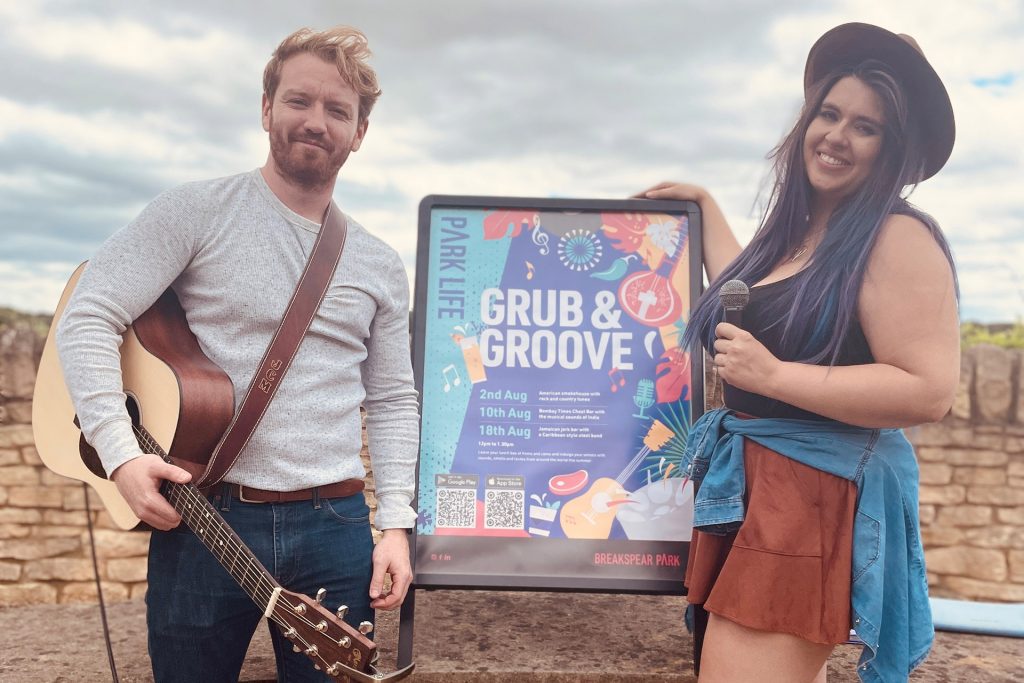
And during August, the onsite team organised an internationally themed event featuring live music from a Caribbean-style steel band, American Country music, and Indian music, along with outdoor food pop-ups. The event made use of the site’s 16-acre gardens and ran for three days – a Tuesday, Wednesday and Thursday staggered over three weeks to enable people who may be away during August to take part.
“Our goal is that people coming to work here feel that they are part of the community, which is #Park Life, so this summer campaign is an opportunity to network and meet people. The #ParkLife agenda means that Breakspear Park is not just a workplace; it’s a place where the community is formed, and everyone plays a part in its success,” Dina says.
While business parks are not often in the most convenient city centre locations, the culture of wellbeing, lifestyle opportunities, leisure provision and collaboration opportunities with other occupiers speaks of an increasing awareness from properties owners as to the kind of strategies their onsite property management teams should be offering. The best onsite property management teams create inclusive, supportive work environments, unifying the commercial goals of the landlord with the realisation of a better work-life balance for individuals through the range of activities on offer for those onsite.
As Andrew Sparrow, Director of Placemaking in Workman’s Activate team explains: “We are aiming to achieve asset management objectives by increasing occupier satisfaction and retention levels. There is a competitive market in terms of where businesses now take space, so occupiers will question the added value of each site, and what they and their employees stand to gain from it in terms of community and wellbeing.”
The #ParkLife concept at Breakspear Park, launched by Dina and the team in 2018, has grown from infancy into a value-adding proposition that helps the site stand out from competitor workspace solutions for its heightened employee benefits and wellbeing solutions.
Entertainment is combined with the realisation of a better work-life balance for individuals through a range of regular activities, such as a health screening programme and fitness studio classes, creating inclusive, supportive working communities, in unison with the commercial goals of the property. For example, the #ParkLife programme has included events around National Relaxation Week, offering up to 800 30-minute massages to employees on-site, as well as a Health Screenings Programme, including free Diabetes Screening, that serves as an effective employee benefit and wellbeing option.
There is also a desire for business parks to reach out to the communities around them; to work with schools, charities, community groups and the local council to generate routes into employment at the site. “It’s about connecting people and building pathways within the community,” says Andrew. “We call it destination marketing, but what we are doing is unifying the goals of the asset with the goals of the occupiers and their employees.”
Read more about our approach to Building Community across our managed portfolio.

Across the Workman-managed portfolio, comprising more than 4,000 properties, our property management teams deliver great occupier experience through strategic engagement programmes and regular communication.
Here we meet some of the experts who lead our work to create a sense of place and community, particularly vital within multi-occupier buildings.
Richard Hart, Head of Property Management, UK and Europe

Having joined the firm through its renowned Graduate Scheme in 2007, Richard became a Partner in 2014. Today he’s responsible for the delivery of the property management service on behalf of both UK and European property funds, private clients, and investors including: LGIM Real Assets, CBRE Investment Management, CapitaLand and Segro. Richard works closely with clients to help maximise asset performance and value through a robust management strategy, with both ESG and customer experience at its core.
In recognising the importance of occupier experience in today’s commercial property spaces, Richard says: “We strive to meet the needs of modern occupiers, by ensuring that all properties in the Workman-managed portfolio offer stimulating, healthy environments that support occupiers’ physical, mental, and social wellbeing in an environmentally responsible way, while creating a sense of place and togetherness within the local community.”
Eleanor Newton, Senior Associate

A highly experienced property manager, Eleanor works closely with several prime office and campus sites within the Workman portfolio, including Westside in Hemel Hempstead and Republic in London. She uses her experience to build partnerships between landlords and occupiers through enhanced property management, focusing on operational excellence, wellbeing, and occupier experience to create environments which support personal and professional demands. Eleanor is also well-versed in the use of smart-tech and occupier-engagement apps to achieve building efficiencies and environmental targets.
Eleanor says: “Occupier engagement holds the key to successful and sustainable property management. Building strong connections with occupiers to drive change in how buildings are occupied is critical in the journey to Net Zero. To manage buildings safely and efficiently, it is more important than ever to understand occupancy patterns. Today, occupiers are looking to their landlords to meet their changing expectations, which landlords and property managers can only be aware of by working closely with them.”
Richard Price, Welcome Community Manager

Community manager Richard works to devise occupier experience and engagement and experience strategies for Workman’s Welcome portfolio. Working closely with the Welcome team and all front-of-house personnel, Richard leads communication and feedback programmes for individual assets and their occupiers, while delivering services tailored to their needs.
Richard says: “Our role is all about human connection; understanding exactly what occupiers want. In some buildings, this may be the delivery of a jam-packed programme of lunchtime events or bespoke wellbeing initiatives. In other buildings it may mean collaborating with occupiers to implement social initiatives with the local community, or we may be delivering any combination of these. Our ultimate goal is that occupiers get exactly what they want from their space and service, delivered seamlessly.”
Monika Newton, Partner

Passionate about customer service, Monika began her career in hotel management, a grounding which formed the bedrock of her drive to provide exceptional service for occupiers through Welcome, the Workman Offices service. Specifically designed to enhance the quality of the working environment and experience required by the modern office occupier, the Welcome team provides the highest level of customer service.
Monika says: “There is an interesting dynamic today in the landlord and occupier relationship; and with heightening competition between office landlords, the occupier experience in workspaces often becomes a deciding factor. Exceeding the expectations of occupiers directly contributes to our clients’ investment performance through improved occupier retention. We continually strive to evolve the customer experience, bridging the gap between traditional offices, flexible workspaces, and the home experience. The true point of difference now lies in collaborating with customers to co-create attractive workplace communities, which sit somewhere between a hotel and home.”
Andrew Sparrow, Director of Activate, Workman’s Placemaking team

Having previously managed the master planning and delivery of retail, office and mixed-use schemes across the country, including the Spitalfields Market Estate, Andrew has delivered a plethora of placemaking projects for a wide range of investors, developers, and local authorities. He advises clients on commercially viable solutions for transforming spaces into destinations that deliver dynamic occupier experiences. As Director of Activate, Workman’s Placemaking, Destination Marketing and Customer Experience team, Andrew is a specialist in enlivenment and placemaking strategy.
Andrew says: “Creating quality places where people want to live, work, and play is at the heart of the Activate service. The ongoing satisfaction and enjoyment of people utilising spaces is our top priority, so we are constantly working to generate spaces that promote people’s health, happiness, and wellbeing.”
Read more about our approach to Building Community across our managed portfolio.

How to make places help people to generate social value? Linking up with local councils, schools, and social enterprises can embed commercial property in the local area, helping buildings contribute to vibrant communities.
Sustainability does not begin and end with carbon reduction. The “S” of ESG – Social – has a huge role to play. The buildings in which people work, play, and shop define and shape their neighbourhoods, especially in cities, where they can have an enormous social impact upon communities. So how can investors and property managers ensure assets benefit both occupiers’ employees and the communities that surround them?
What is social value?
Creating social value involves engaging communities both within and around a development. When buildings support environmental, economic, and social wellbeing, they improve the quality of life of people using them by providing access to services and integration into the wider economy and society. Across the Workman-managed portfolio, our strategies are specifically designed to engage occupiers and visitors, to draw in the local community, and make buildings a part of the local community.
Great Northern: creating spaces that people fall in love with
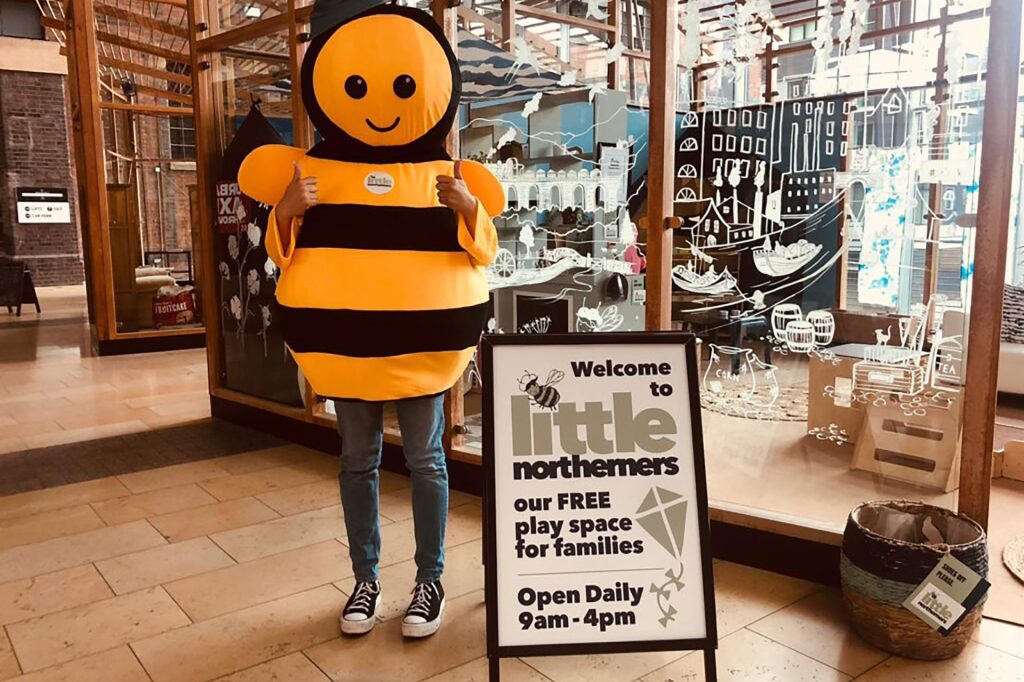
Located in the heart of Manchester city centre, Great Northern is a mixed-use site, home to a cinema, bowling, restaurants, bars, entertainment venues, shops, and public square. It takes its role as part of a wider community seriously, offering services to local businesses and residential areas neighbouring the site.
A new space, “The Village Hall”, is open to any business on site for meetings and training sessions. The Workman team holds meetings in the space, and it is used by community groups such as a female choir group, and a parents-and-tots group.
Separately, “Little Northerners” is fitted out as a free space for families aimed at pre-school children for active and constructive play with a dolls house, a tepee, and construction blocks. Once a week, the space is hosted by a Play Facilitator. This is next door to the “Book Nook”, a free book-swap library run by volunteers from neighbouring residential block Great Northern Tower and from Manchester University, who organise and alphabetise the books. The space is used throughout the day, with a turnover of 1000+ books per month.
Outdoors, a public amphitheatre area has been created in the square at the front of the site. For summer, this was transformed into a giant sandpit with 50 tonnes of play sand, buckets and spades, and a large, wooden structured playhouse, free to use at any time of the day. A Forest Tots practitioner runs free weekly play sessions, which see children pour into the area, accompanied by parents and grandparents observing from surrounding picnic tables and seating areas.
Owners Trilogy and Peterson Group were originally granted planning consent to develop the warehouse into apartments, but reassessed plans following the pandemic, so official redevelopment of the site has yet to begin. In the meantime, the use of the space – much of which has developed organically – has informed the future development plans. Many popular community initiatives will be carried forward as part of this new neighbourhood within city centre Manchester, as the site will retain its public realm areas alongside private residents-only or office-work-only areas.
Touchwood: reaching out to schools
Touchwood, the prime Solihull shopping centre, which features 80+ stores – including John Lewis – plus 20 bars & restaurants and a Cineworld cinema, was created to provide an environment that not only extended the retail, commercial and leisure offer of the town, but also integrated into the existing fabric of the area. The centre is owned by US real estate investment firm, The Ardent Companies and managed by Workman, whose onsite property management team regularly consults with community partners to run initiatives that involve, attract, and support the local community.

It has developed strong ties with local schools, most recently working in conjunction with Solihull Council to run a competition where local schools were invited to create a flag for their chosen Commonwealth country made of entirely recycled material. The 16 flags then featured as a trail around the centre, with visitors answering quiz questions as they identified each flag. The centre has also fostered links with a local special needs school, with three students attending each week to do work experience. One has since been employed as part of the centre’s housekeeping team.
Republic: collaborating with charities
A next-generation office and education campus spread over four buildings comprising 650,000 sq. ft of office and retail space, Republic is at the forefront of East London’s commercial and cultural regeneration. Brought on board by Trilogy Real Estate and fund manager LaSalle Investment Management, Workman’s role is to manage the property effectively, while also helping it become a part of the local community.
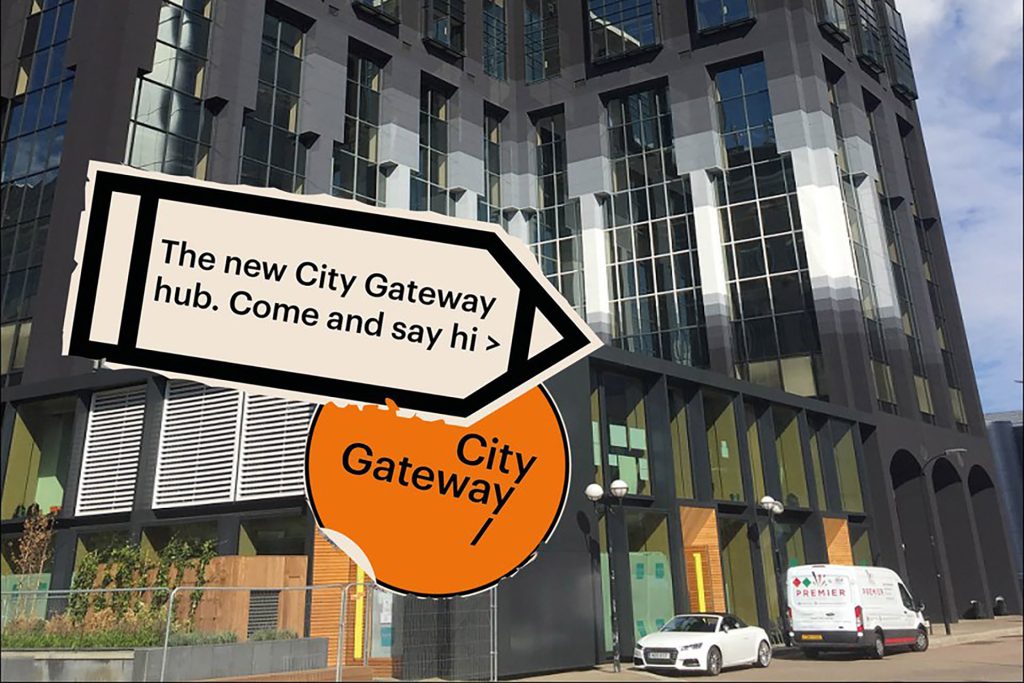
Its proximity to both the affluence of Canary Wharf, and Tower Hamlets where more than half of all children wake up in poverty, makes it an ideal base for City Gateway, a charity which provides education and opportunities to young people from disadvantaged backgrounds, along with volunteering opportunities for corporate partners. The charity provides support services, training courses, Traineeships and Apprenticeships for young people, readying them for the workplace. Through a network of placements with world-leading employers, City Gateway provides opportunities for employment at Canary Wharf, Republic and beyond. Indeed, Welcome has already facilitated several Apprenticeship schemes within the Republic campus.

The site is also home to a female-run social enterprise café called Tati, serving Bengali fare. Supported by not-for-profit Oitij-jo Collecti, with backing from the Mayor of London and other partners, the women obtained hygiene certificates, worked in professional kitchens, chosen the café décor, and developed front-of-house skills, before selling meals to Republic occupiers on a weekly basis.
Silverburn: cleaning up the community
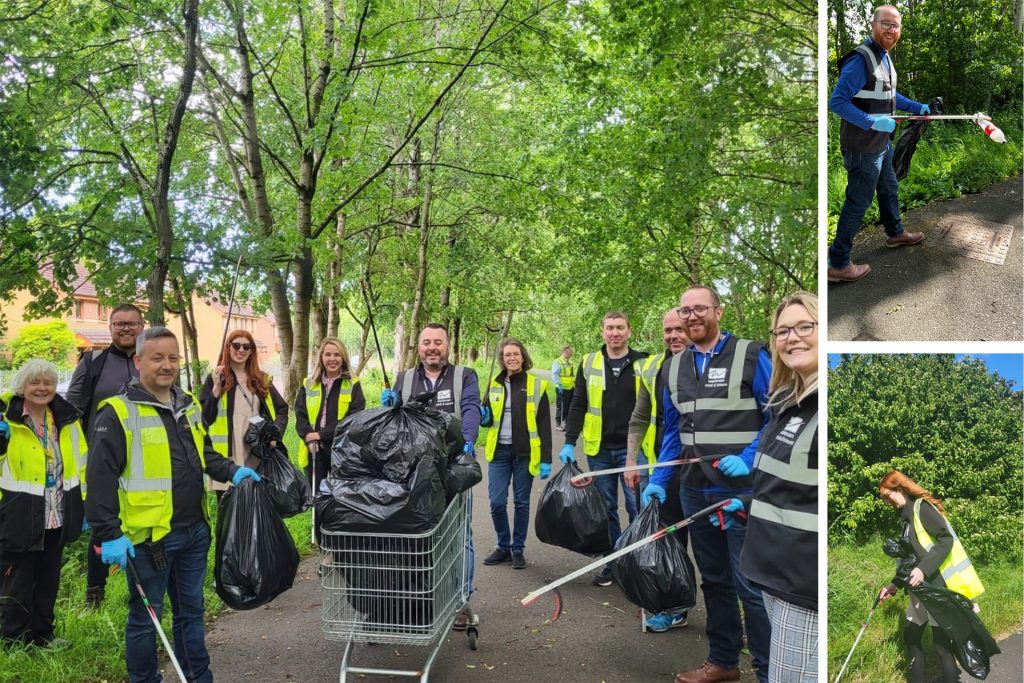
As part of environmental and community outreach work at Silverburn, Glasgow’s flagship shopping centre, the Workman property management team joins the quarterly litter pick in residential areas surrounding the 1,500,000 sq. ft site. Organised in conjunction with Glasgow City Council, the most recent effort took place on a clear sunny day and resulted in a big pile of rubbish collected by an enthusiastic team of volunteers. Since opening in 2007, Silverburn has historically generated consistently high footfall of 15 million people per year, boasting one of the highest average spends-per-visit thanks to affluent catchment areas such as Newton Mearns, Clarkston and Giffnock. With 125 retail and leisure units, the centre, owned by Eurofund and Henderson Park, is currently 80% occupied.
Further efforts to give back to the local community come in the form of official digital sponsorship of the Open Goal Broomhill FC football team. Always looking for creative ways to engage with its audience and customers, this partnership for the upcoming Lowland League season builds on an already established involvement with the team, including hosting its Keeping the Ball on the Ground show at Silverburn in 2019. This latest collaboration between Silverburn and the football club also draws in the Open Goal podcast team, who will film their popular football-dedicated podcast at the centre.
Read more about our approach to Building Community across our managed portfolio.

What lessons can office workspaces and retail assets can learn from each other when it comes to delivering the best tenant experience?
Retail and workplace assets alike are having to work harder than ever to deliver the best tenant experience to encourage people through their doors. Over the years, the retail sector has deployed a range of strategies to increase footfall and improve dwell times, relying on events and enlivenment such as family days, character appearances, food, and music. Today, with so many schemes no longer able to depend on the same old national retail chains, they are instead looking to smaller, local independents to occupy space, while also exploring the value of markets, and food & beverage, as a way to attract customers and build communities.
Esther Worboys, Placemaking Manager at Activate, Workman’s placemaking team, explains that retail assets are learning from other sectors in areas including community outreach and sustainability. “This is something that business parks have been doing very well for some time, and now retail is starting to adopt similar aspects of ESG such as using their wider outdoor space to for environmental and social benefits for the local community.”
Initiatives like installing beehives on site are popping up at shopping centres and retail parks as a way of delivering ESG goals as well as engaging local schools and colleges. At the NewRiver REIT plc-owned Cornmill Shopping Centre in Darlington, the introduction of bees, bird boxes and rooftop allotments, have not only added to the centre’s biodiversity, but also created community links through Darlington College and donations of produce to the local foodbank.
Better tenant experience – Cross-fertilisation of retail and commercial strategies
As Michelle Atack, Activate’s Destination Marketing Manager points out, asset managers who operate across both retail and commercial can see the benefits of strategies at one kind of asset and are starting to ask for something similar on the other. “They’re watching each other and taking a little bit of experiences from the retail element into the workspace world and vice versa,” she says.
On the flip side, although other types of commercial property are not trying to encourage spend and dwell time, they are aiming to build a network and community. And while the measurables for ROI may be less tangible for workplaces, engaging with occupiers and understanding what they want out of those community links or experiences is just as important.
“Doing the market research and understanding what occupiers want is another area where office property has learned from retail. It’s vital to find out what a particular community of people want to get involved in before organising events and activities,” says Esther.
At Workman-managed business park Croxley Park, for example, the demand is very much for family-friendly events, where everyone is welcome. The annual Croxley Park Summer Social event now includes entertainment for families and children, including bouncy castle, a roaming magician, street theatre, a DJ, cocktail-making, table-scaping, and floristry sessions. These large-scale events – popular for years across retail assets – are now a common calendar event at many commercial properties.

Harness social media as part of the tenant experience
During the pandemic, social media came into its own for commercial properties. Long utilised by retail assets to build communities of shoppers, it was harnessed by workplaces including Workman-managed Republic and Moretown, which were keen to reach out to employees with exercise tips and wellbeing content.
Post-pandemic, this strategy is vital for engaging employees who may be working from home part of the week. Social media is also being exploited at sites which are building links with local schools and local community groups.
A sense of community
Working collaboratively with local key stakeholders and partners brings greater results, and helps build and strengthen long-term relationships. Whether retail or workplace, it’s clear that building a sense of community is key to the success of real estate assets.
Community should be at the forefront of both retail and office destination marketing strategies – and campaigns to keep shoppers and employees engaged – because communities bring a sense of belonging. Over time, these initiatives improve the greater good of the wider community which properties serve and support.
Read more about our approach to Building Community across our managed portfolio.
Activate, Workman’s placemaking team, has been appointed to deliver destination marketing and community engagement at two significant office locations: Spark Foundry, part of the Newcastle Helix tech and science community in Newcastle and the Round Foundry Media Centre including Marshall’s Mill in Leeds.
The work, which is set to begin later this month, will focus on creating communities of occupiers – both on and offline – and increasing engagement. The first step often involves reaching out to occupiers through surveys and site visits to understand what kinds of networking events or online content they would like to see offered at their workplaces. The goal is to uncover the needs and aspirations of the occupiers, and once the Activate team has ascertained this, the delivery of events and online community building begins.
With transatlantic law firm, Womble Bond Dickinson set to move into 106,000 sq. ft The Spark on 30 May, community engagement strategies for employees are pivotal to create social communities at such workplaces, enabling individuals who may be employed by a variety of different occupiers to interact.
Additionally, to connect the workplaces to surrounding local communities, the Activate team is working closely with the building managers to engage with local councils, local Business Improvement Districts and other stakeholders in both Leeds and Newcastle.
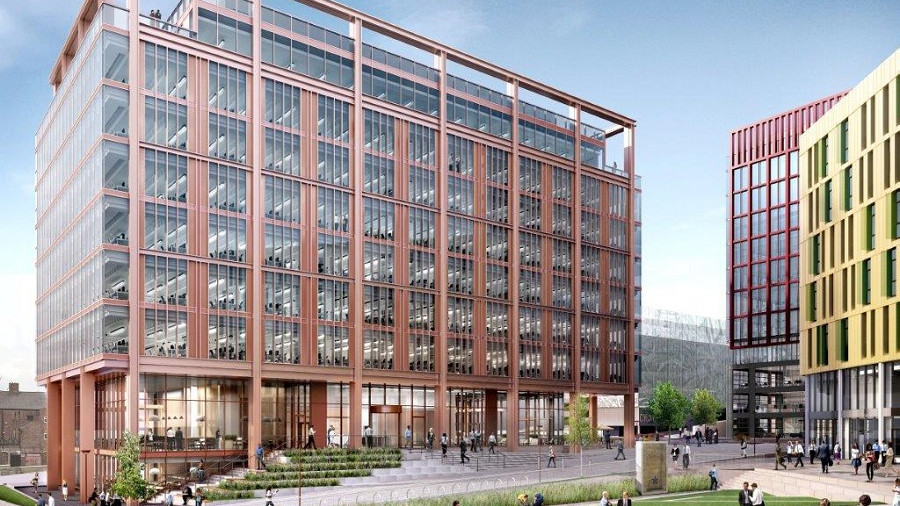
Michelle Atack, Destination Marketing Manager, said: “Now that more and more occupiers are returning, while flexing their in-office days post-pandemic, it’s vital that time spent in workplaces is as valuable and meaningful as possible. Activate’s destination marketing programmes not only increase return rates, our enlivenment strategies also help create communities that teams want to be a part of, with events they don’t want to miss.”
Andrew Sparrow, Director of Placemaking, said: “During the pandemic, people were starved of human interaction, especially in the workplace. Now people are excited to get people back together so that when they are in the offices, they are learning, developing, and collaborating again which can have such a positive impact on all our mental wellbeing. Our destination marketing programmes form a cornerstone of workplace community-building that extends beyond the professional into the social, and helps people find even more reason to return.”

